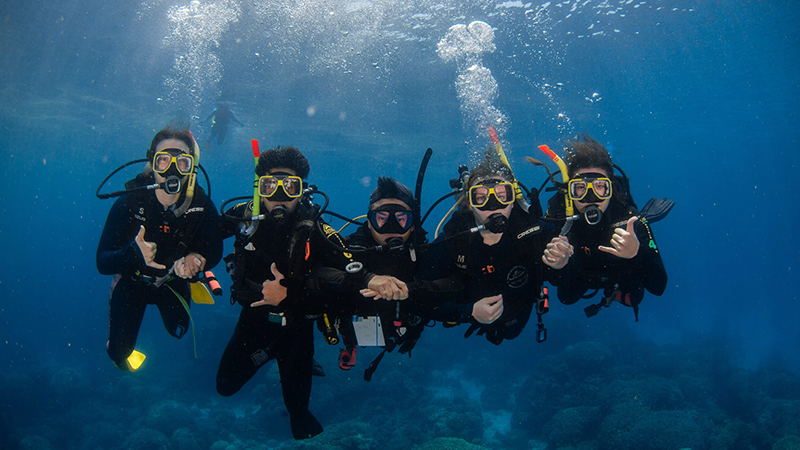
By Ronica Stromberg
On a recent study abroad, Nebraska students had the chance to be serenaded to sleep by kookaburras and awakened by wallabies hopping outside their window. The 20 students toured Australia from December 26-January 14, comparing its animals, ecosystems and ecosystem management methods with those of home.
Mark Burbach, a professor of human dimensions of natural resource management, led this ninth trip to Australia with Becky Schuerman, extension educator. Burbach had led the biennial trip four times before and has continued to refine it under the theme 'managing diverse ecosystems.'
"What's in the best interest of students, and what would they benefit most from, is always at the forefront of my thinking about the next program," he said.
New this time was a look at the latest research at the University of Tasmania on kelp, the brown algae commonly called 'seaweed.' Students learned from the university’s Institute for Marine and Antarctic Studies that giant kelp around the world have been dying off, possibly from climate change. Many fish and crustaceans depend on kelp forests as habitat, so researchers have been trying to develop kelp that can tolerate higher temperatures. Researchers also discussed the possibility of growing kelp, harvesting it, drying it and adding it to livestock feed as a way to reduce methane emissions from cattle.
Follow the rest of the story and see more images of the trip at https://snr.unl.edu/aboutus/what/newstory.aspx?fid=1223